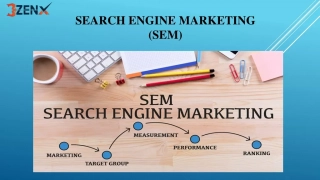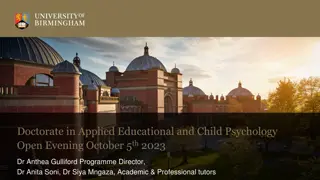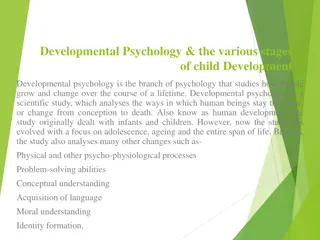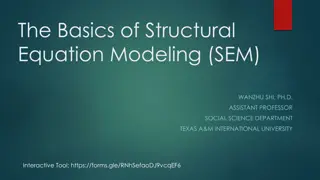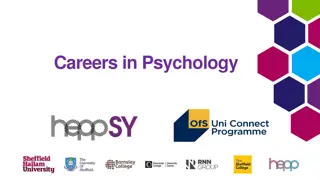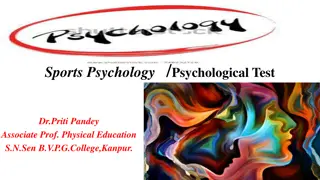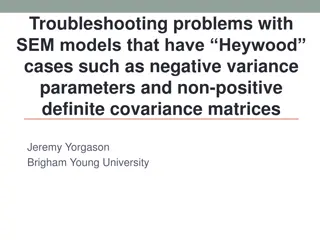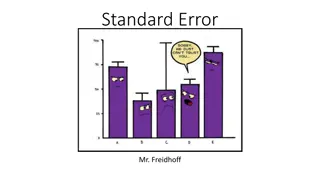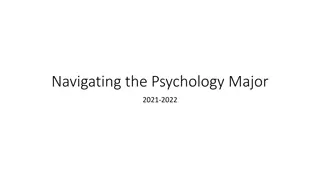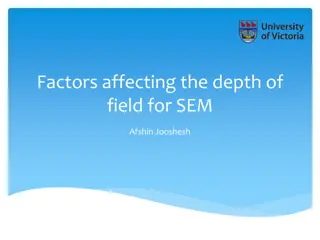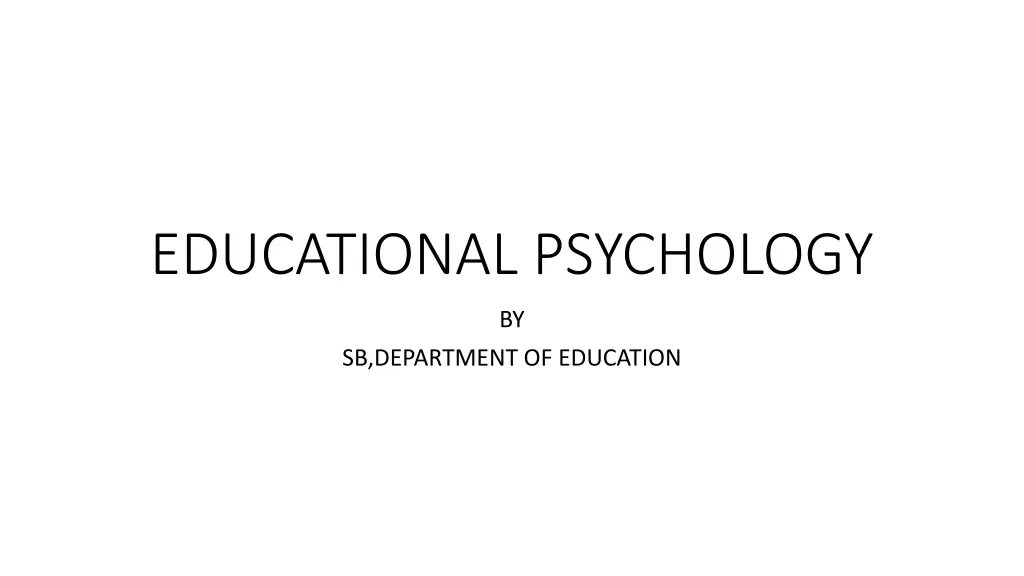
Understanding Educational Psychology
Explore the scientific realm of Educational Psychology, delving into how individuals learn, effective teaching methods, and the social psychology of educational institutions. Educational psychologists apply theories to create optimal learning environments for diverse learners, focusing on cognitive development, motivation, and individual differences.
Download Presentation

Please find below an Image/Link to download the presentation.
The content on the website is provided AS IS for your information and personal use only. It may not be sold, licensed, or shared on other websites without obtaining consent from the author. If you encounter any issues during the download, it is possible that the publisher has removed the file from their server.
You are allowed to download the files provided on this website for personal or commercial use, subject to the condition that they are used lawfully. All files are the property of their respective owners.
The content on the website is provided AS IS for your information and personal use only. It may not be sold, licensed, or shared on other websites without obtaining consent from the author.
E N D
Presentation Transcript
EDUCATIONAL PSYCHOLOGY BY SB,DEPARTMENT OF EDUCATION
Educational psychology : Educational Psychology is the scientific study of how people learn in educational settings, the effectiveness of instructional methods, and the psychology of teaching. It explores cognitive development, motivation, learning processes, and individual differences in learners. For example, understanding how a child with ADHD processes information helps teachers adapt lessons for better focus and engagement. Educational psychologists apply theories like Piaget s stages of development or Vygotsky s zone of proximal development to enhance teaching strategies and student outcomes. The goal is to create more effective learning environments that support all learners in achieving their full potential.
CONCEPT AND MEANING OF EDUCATIONAL PSYCHOLOGY Educational Psychology is the branch of psychology that studies how people learn in educational settings, the effectiveness of teaching methods, and the social psychology of schools as organizations. What is Social Psychology: Social psychology is the scientific study of how people's thoughts, feelings, and behaviors are influenced by the actual, imagined, or implied presence of others. It focuses on understanding the cognitive, emotional, and social processes involved in learning. This field helps educators design effective learning environments and address students' individual differences. For example, if a student struggles with math due to anxiety, an educational psychologist might suggest stress-reduction techniques and personalized learning strategies to improve performance. By applying psychological principles, educational psychology aims to enhance teaching quality and learning outcomes for all students.
Nature of Educational Psychology Educational Psychology is a Science It applies scientific methods like observation, experimentation, and analysis to study how learners acquire knowledge. Like any science, it relies on evidence-based research to develop effective teaching strategies. For example, cognitive load theory helps teachers design lessons that align with how the brain processes information. It is Applied in Nature: Educational psychology bridges theory and practice. The insights gained from psychological theories are applied to solve classroom problems such as low motivation or behavioral issues. For example, applying reinforcement techniques from behaviorism to manage student discipline effectively. Focuses on the Learner: It centers around understanding the learner s developmental stages, interests, abilities, and needs. It considers individual differences such as intelligence, learning styles, and emotional states to tailor effective teaching methods. For example, visual learners may benefit more from diagrams than lectures.
Concerned with Learning Processes: Educational psychology explores how learning occurs whether through observation, repetition, reinforcement, or interaction. It examines memory, thinking, reasoning, and problem-solving to make learning more effective. For eXample, understanding how short-term memory works helps in pacing instruction. Helps in Curriculum and Instruction Design: It aids in designing age-appropriate, need-based curriculum and instructional materials. Educational psychologists provide input on what should be taught, when, and how, to match developmental readiness. For example, Piaget s stages of cognitive development guide what kind of content is suitable for different age groups.
SCOPE OF EDUCATIONAL PSYCHOLOGY THE LEARNING PROCESS THE LEARNER THE LEARNING ENVIRONMENT EVALUATION OF LEARNING PERFORMANCE A learner is an individual who actively acquires knowledge, skills, attitudes, or behaviors through experience, study, or instruction. The learning process is the method through which individuals acquire, modify, and reinforce knowledge, skills, attitudes, or behaviors through experience or instruction. A learning environment is the physical, social, and psychological setting in which learning takes place, influencing how effectively individuals acquire knowledge and skills. Evaluation of learning performance is the systematic process of assessing a learner s knowledge, skills, and progress to determine the effectiveness of instruction and learning outcomes.

